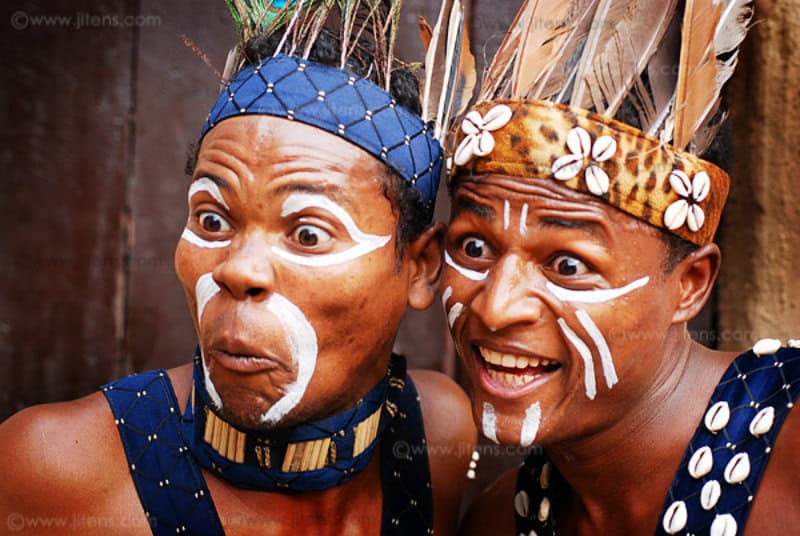Despite major modern developments across the country, there are still many tribes in India who prefer to live with centuries-old customs and traditions.
While we know extremely little about many of these tribes, some have opened up a little and offered a glimpse into their lives.
1. Chenchus, Andhra Pradesh
People of this tribe, residing mainly in Andhra Pradesh, speak a dialect of the Telugu language known as Chenchu.

The Chenchus of Andhra Pradesh are quite progressive compared to the rest of Indian society when it comes to matters of the heart. Chenchu youth are free to marry whoever they wish. There is no form of parental pressure or aggression.

Also, the clan is divided into Gotras (like Indian caste system), and generally they do not marry within the same Gotra.
Unlike the rigid society of India, Chenchu tribes allow divorce, and widows too are allowed to remarry.
2. Bhil, Rajasthan
The Bhil are one of the biggest tribes in India, comprising almost 39 percent of the whole Rajasthani population.

Bhils are pretty independent and follow their own set of rules and customs. There is lot of freedom given to Bhil women and women are treated as equals by the Bhil society.

Bhil women smoke hookah and consume liquor openly with men and such activities are not looked down upon. Furthermore, the Bhil community practices polygamy where a woman is allowed to remarry and have multiple partners after her first marriage.
3. Santhals, Eastern India
This tribe mainly occupies parts of Eastern India in West Bengal, Orissa, Jharkhand, Bihar and Assam.

Santhals do have some contact with the urban world and society and are multilingual as they speak many languages other than Santhali. However, their written script is new and was developed as recently as 1925.

While not atheists, Santhals do not believe in idol worship. They have no temples and no idols!
They instead, worship local gods and spirits. They are ghost-fearing people and try and appease the “ghosts” of their area. Tribals often make animal sacrifices to appease these ghosts.
4. Mundas, Jharkhand
Though the Mundas tribe from Jharkhand is small in number, it is quite well-known.

The members of the tribe are not backward or restricted to their villages and have earned laurels in the fields of sports, politics, literature, revolutionaries, etc. Ram Dayal Munda, a member of the tribe, has been awarded the Padma Shri award too.

One unique thing about the tribe is how they derive their surnames. The names are derived from the legends of the past. The surname Dodrai is attributed to the lineage of the man who once ventured into the forest in search of honey. He found honey in the hollow of a tree but in trying to extract it, his hair and body were completely smeared with the liquid.

The villagers carried him home and used 7 vessels of oil to clean and soften his hair. Since then, his name became Dodrai and his lineage acquired the surname! Each Munda surname has such tales behind their inception.
5. Khasi Tribe, Meghalaya
Khasi is considered as a peace-loving tribe and they are named after the language they speak: Khasi language.

While most of the Khasis follow their tribal religion, there are many converts who have taken up other religions like Christianity and Islam. One thing that makes the tribe unique is that they are a matrilineal tribe, which means they carry on the maternal tradition.
The children’s surnames are based on the mother’s lineage and not the fathers. Also, it is the mother who inherits the property and not the father.

Also, Khasi tribals do not prefer arranged marriages. In case of a divorce, the woman has complete freedom. Her choice cannot be questioned and she owns the children and properties. The property post death/conflicted property always goes to the youngest daughter.
Another cool thing about them is their divorce method. While the younger generation does resort to courts, most of the Khasis follow the traditional method. The husband hands the wife 5 paise which the wife returns after adding 5 of her own. The coins are then given to the village elder who throws them away. And the couple is divorced!
This article was originally posted on indiatimes.com.














